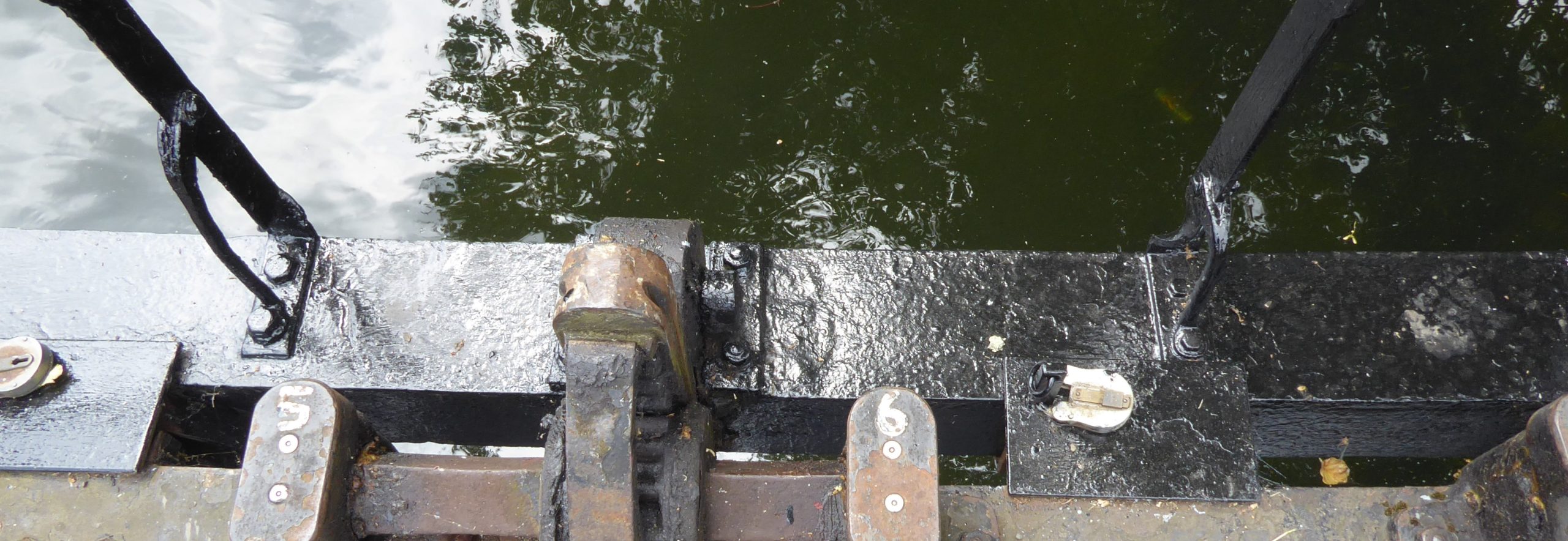
ARFID: two recent publications
Avoidant/Restrictive Food Intake Disorder (ARFID) is a serious eating disorder characterised by extreme food avoidance, sensory based restriction, or fear-based refusal. [1] . …
Read moreLuke Clements is the Emeritus Professor of Law and Social Justice at Leeds University.


Avoidant/Restrictive Food Intake Disorder (ARFID) is a serious eating disorder characterised by extreme food avoidance, sensory based restriction, or fear-based refusal. [1] . …
Read more
Our research strongly suggests that the most oppressive traumas[1] experienced by the majority of families with disabled children – result from the behaviour of public services: traumas caused by the…
Read more
In March 2026 the English Government is due to give its interim response to the Law Commission’s proposals (published in September 2025[1]) for the reform of the law relating to…
Read more
There appears to be little research concerning the prevalence and impact of ex parte (ie secret) hearings in the Family Law courts and in the Court of Protection: hearings that…
Read more
The NHS has a duty to provide support for adults who are eligible for continuing healthcare funding and who have been assessed as needing transport for social care activities: the…
Read more
The treatment of families with profoundly disabled children by increasing numbers of NHS Integrated Care Boards (ICBs) in England and NHS Health Boards in Wales is truly shocking. Children on…
Read more
A report based on major research by Professor Andy Bilson finds (among much else) that children with a disability or mental health concern are more than three times as likely…
Read more
Following last week’s launch of Cerebra’s major research tackling the phenomenon of Systems Generated Trauma, this week has seen two important reports concerning directly relevant issues. Adoption breakdowns On…
Read more
A major research report ‘Systems Generated Trauma’ has been published by the disabled children's charity Cerebra at a launch event in Westminster. It draws on over 10 years of research…
Read more
The Sunday Times and its Special Correspondent Emily Dugan, have to their great credit, persevered with the investigation into wrongful allegations of Fabricated or Induced Illness (FII). The article was…
Read more
The Sunday Times in its investigation into wrongful allegations of FII, carried a further harrowing story on 10 August 2025. It concerns Maeve Boothby O’Neill who died in 2021 (aged…
Read more
A good colleague has summarised three ombudsman reports concerning the alarming failures by the key health and social care bodies in Peterborough with responsibility for providing support for a disabled…
Read more
The Sunday Times has published a further article concerning its investigation into the false allegations that are being made against parents that they are fabricating or inducing their child’s illness. …
Read more
A major article appeared in the Sunday Times on 20 July 2025 concerning its investigation into the impact that unsubstantiated Fabricated or Induced Illness (FII) allegations are having on countless…
Read more
Increasingly I am confronted by cases involving profoundly disabled children where the behaviour of the NHS takes my breath away. Of course, the NHS is generally spectacular when called upon…
Read more
A recent (May 2025) research paper by Professors Andy Bilson and Alessandro Talia involved a comprehensive review of Serious Case Reviews (SCRs) in England from 2010 to 2021. It found…
Read more
St George's House, based in the grounds of Windsor Castle was founded in 1966 by the (then) Duke of Edinburgh and the (then) Dean of Windsor. It seeks to effect…
Read more
There are strong rumours that the Government is planning to impose drastic restrictions on the provision of specialist educational support for children and young people – or indeed – scrapping…
Read more
The Shropshire Parent and Carer Council has just published a powerful report ‘Mad, Sad, Glad’ that reflects on the feedback Parent Carers across their county have provided. Parent Carers were…
Read more
The posting that follows, has been published by the disabled children’s charity Cerebra at https://cerebra.org.uk/legal-rights/putting-the-record-straight/. It is a response to the lecture delivered by Baroness Hale of Richmond at The…
Read more
There is no shortage of Children’s Services’ authorities who have lost touch / stopped listening to the families that they are there to serve. As Lord Justice Munby said ‘the…
Read more
A major research report has been published concerning the degrading experiences of many disabled children who are denied adequate continence support services. The report, ‘Inaccessible, unacceptable and unaccountable: the provision…
Read more
Pam Coughlan passed away on the 8th January 2025. Paralysed as a result of a spinal cord injury in 1971, she took on the Secretary of State for Health and…
Read more
The deadline for commenting on the Law Commission’s Disabled Children’s Social Care Consultation Paper has been extended, and is now Friday 31 January 2025 (23:59). A copy of my response…
Read more
Tash Ashby was 21 years old when she died. At the time of her death, she was street homeless, living in the undergrowth around Hereford bus station. Her lifeless body…
Read more
A guest posting by Lisa Ballesteros. Background My son, T, wasn’t expected to survive the night. Born at 26 weeks gestation with an alphabet soup of medical conditions, he…
Read more
A recent High Court judgment Sammut & Others v Next Steps Mental Healthcare Ltd & The Greater Manchester Mental Health NHS Foundation Trust [2024] EWHC 2265 (KB) has identified a…
Read more
An important claim concerning wrongful care proceedings has finally been settled by an English Children’s Services council. The claim was brought by the campaigner Elly Chapple – the founder of…
Read more
An important judgment, R (A) v North Central London Integrated Care Board [2024] EWHC 2682 (Admin) that confirms the mandatory duty on ICBs to provide care plans that spell out…
Read more
In an Open Letter to the Royal College of Paediatrics and Child Health, a number of researchers and NGOs called for the withdrawal of its guidance concerning FII (Fabricated or…
Read more
Cerebra and the University of Leeds are collaborating on research that seeks to better understand the extent to which parents of disabled children experience trauma as a result of navigating…
Read more
The Disability Law Service has published a report that makes the case for the abolition of home care charges for Disabled adults in England. The research that underpins the report…
Read more
A fascinating hustings took place in Hereford prior to the election concerning the ‘Crisis in Children's Services’. Nationally, as we all know, children's services are in crisis: a ‘scandal’ ……
Read more
‘Trauma related practice’ is a phrase increasingly used by public bodies to convey their awareness that many of those with whom they interact have experienced life changing traumas. As a…
Read more
We all need quality ‘short breaks’ – but for many parents of disabled children they are a distant dream. Fit for purpose ‘breaks’ from heavy caring commitments depend on several…
Read more
Cerebra, IPSEA, SOS!SEN and Contact have jointly written and article expressing concern about revised school transport guidance issued by the Department for Education and inviting families to complete a short…
Read more
Cerebra, the disabled children’s charity has published[1] an important and troubling analysis of data concerning the performance of the Local Government and Social Care Ombudsman (LGO). Over a decade of…
Read more
As expected, disabled children and their families will be disappointed by the updated 2023 Working Together guidance. Despite compelling evidence that local authority assessment and care planning protocols discriminate against…
Read more
FII is a term adopted by the Royal College of Paediatrics and Child Health – in essence – to replace what was previously referred to as ‘Munchausen syndrome by proxy’.…
Read more
Can local authorities refuse to fund a home care package if it is cheaper for the person’s needs to be met in a care home? Where there is more than…
Read more
So, what was that all about? For some strange reason in 2020 the Department of Health and Social Care changed its mind concerning the determination of a person’s ordinary residence…
Read more
An earlier posting[1] considered an important local government ombudsman decision. The decision confirmed that: (1) parents of disabled children have a right to opt for a direct payment even if…
Read more
Guidance developed by independent Parent Carer Groups and individual parent carers will be launched at a webinar on the 12 July 2023 10:30am – 12:30pm. The document describes what they…
Read more
The Department for Education (DfE) has opened a consultation on its proposal to update the 2018 ‘Working Together’ guidance. It has summarised the overall aim of the update as a…
Read more
A local authority accepted that a disabled person had eligible needs for support to develop and maintain personal relationships, and provided funding for him to attend a social and life…
Read more
PANS and PANDAS are severe childhood impairments with symptoms of obsessive-compulsive behaviours, tics or eating restrictions that develop suddenly: conditions that can be accompanied by changes in normal behaviours, personality…
Read more
There is an extensive body of English and Welsh law that requires local authorities to provide school / college transport for disabled young people.[1] What is often forgotten, however, is…
Read more
Flicking though the current (March 2023) batch of Local Government Ombudsman’s Children and Education complaints decisions is like re-watching Groundhog Days. More than half of the complaints were not, for…
Read more
Parent Blame is not simply a problem encountered by families when dealing with Children’s Services. It is, therefore, very welcome that West Midlands ADASS (the Association of Directors of Adult…
Read more
A report published by the Nuffield Family Justice Observatory highlights the ‘extreme vulnerability’ of children who are the subject of High Court applications that seek to deprive them of their…
Read more